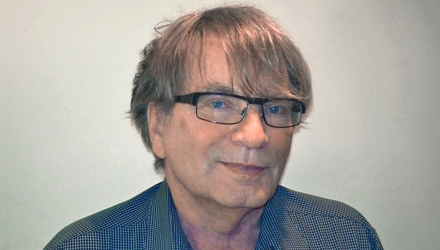
Anneliese Maier Award Winner Comes to RUB
Prof. Francis Jeffry Pelletier wants to crack the Riddle of Countability
The Alexander von Humboldt Foundation has awarded the Annaliese Maier Research Award of €250,000 for the second time – and for the second time Ruhr-Universität Bochum is delighted to see one of the international researchers who received the award come to Bochum. The Canadian linguist Prof. Francis Jeffry Pelletier (University of Alberta, Edmonton und Simon Fraser University, Burnaby B.C.) is one of the award winners for the year 2013. He is working with Prof. Dr. Tibor Kiss in the Institute for Linguistics at RUB to crack the “Riddle of Countability” of nouns by comparing languages.
The Anneliese Maier Research Award
The Humboldt Foundation supports further research collaborations carried out by German and international partners with the highly remunerated award for a period of up to 5 years. The award was named after the German philosopher and science historian Anneliese Maier and is intended to make research conducted in the fields of Humanities and Social Science in Germany well-known on an international basis. In the first round the award went to the American philosopher Prof. Shaun Gallagher who used the prize money of €250,000 to strengthen collaborations with the Department of Philosophy at RUB. In the second round Prof. Pelletier received the award following a recommendation by Prof. Kiss. They have been working together since 2010, paying particular attention to polysemy (ambiguity), and can now carry out this research on a permanent basis until the end of 2017 due to the funding from the Anneliese Maier Research Award.
Countable or Non-Countable?
Nouns can be classified as to whether they are countable or non-countable – for example the noun “lentils” is countable but “mud” is not. To put it simply, countable nouns can be singular and plural but there is only one form of non-countable noun which looks like a singular noun. Singular countable nouns have to be accompanied by an article, mass terms do not. This distinction which seems simple at first glance turns out to be problematic because there are linguistic processes which turn countable nouns into non-countable nouns (so-called mass terms) and vice versa. For example the noun “beer” is non-countable but this doesn’t stop us asking for “three beers” in a restaurant. The noun “lamb” forms a plural and is therefore countable (lambs). Nevertheless, one can say “I like lamb” and be referring to a quantity of lamb and not single countable lambs. The distinction can also be made depending on which type of object the respective expressions are referring to: “lentils” and “rice” are both relatively small and nevertheless “lentils” are counted and “rice” is not. It is also unclear how abstract nouns (e.g. “difficulties”, “knowledge”) behave.
Linguistic Data and Theoretical Work
Prof. Kiss has been investigating these issues in the Institute for Linguistics at RUB since 2008, using an innovative procedure with extensive linguistic data. Prof. Pelletier has submitted ground-breaking theoretical work on this issue. Together, they intend to conduct the same research carried out for German on the English language and use the comparison of the two languages to draw nearer to solving the Riddle of Countability.
Translation:
Helen Morgan

